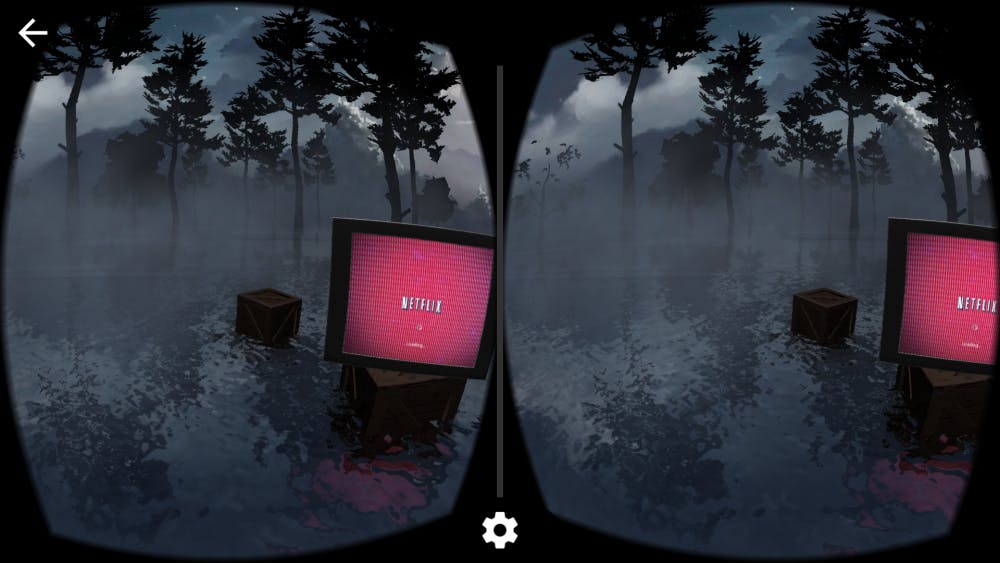
College seniors Reika Yoshino and Jun Xia hosted a mental health event that featured their creation – a virtual reality through Google Cardboard that simulates what it’s like to have a mental illness. | Courtesy of Reika Yoshino and Jun Xia
Penn and its students have attempted to address the issue of mental health through a task force, multiple new clubs and countless events, but two students are taking a more creative approach.
On Wednesday, College seniors Reika Yoshino and Jun Xia hosted an event to allow students to interactively experience a “mental health virtual reality” with Google Cardboard — to get a brief look at what it’s like to suffer from mental illness.
Yoshino and Xia started their creation after sending out a survey to around 40 anonymous Penn students. The survey asked individuals to share their experience with mental illness and how it has influenced their everyday lives.
Yoshino and Xia found patterns in the survey results. Based on responses from those diagnosed with mental illness, depression was found among 83 percent of individuals, closely followed by anxiety, along with PTSD and bipolar disorder.
Then, over the course of one week, Yoshino and Xia collaborated to create a virtual reality experience, with the goal of tackling the issue of mental health in an innovative way.
“Especially at Penn, problems like these become very serious, and we want to show there are different ways to approach discussing important issues,” Yoshino said. “There are a lot of speaker events and discussion groups, but for more soft-spoken individuals, VR can be widely interactive.”
They concentrated on accurately conveying how mental illness feels, while also unveiling more subtle and tragic elements of depression that are harder to translate through words.
“Depression is a huge and complicated subject, and people are more likely to get exposed to portrayals in the pop entertainment media which describes it in reductive terms or glamorizes people living with depression,” Xia said.
After they allowed individuals to experience VR at the event, Yoshino and Xia found they could tell whether or not people had experience with mental illness through their perceptions of the VR.
“People who had an experience with [depression] thought the VR was very peaceful,” Yoshino said. “We depicted a safe space for them, but for others who had less exposure to depression, it felt very unsettling, dark, gloomy and lonely.”
With their recent findings, Yoshino and Xia ultimately hope to influence the Penn community to not only raise awareness of mental health, but also think more about the roots of depression.
“We hope our project can be used as a platform to think about depression or even mental health in a new light,” Yoshino said. “There are a lot of Penn students who are passionate about the issue. However, the challenge for many has always been ‘trying to understand’ how it feels, and hopefully VR offers a different approach to closing the gap between trying and understanding.”
The Daily Pennsylvanian is an independent, student-run newspaper. Please consider making a donation to support the coverage that shapes the University. Your generosity ensures a future of strong journalism at Penn.
DonatePlease note All comments are eligible for publication in The Daily Pennsylvanian.




